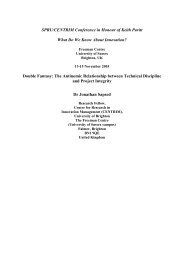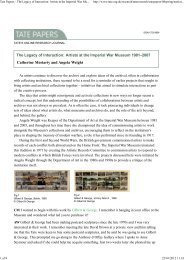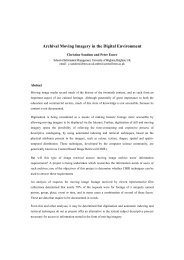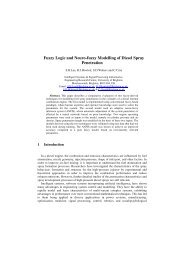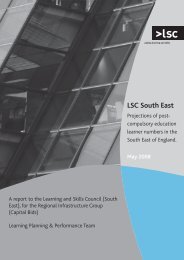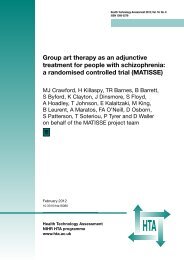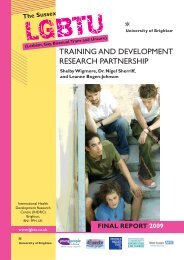TOP TIP - University of Brighton Repository
TOP TIP - University of Brighton Repository
TOP TIP - University of Brighton Repository
Create successful ePaper yourself
Turn your PDF publications into a flip-book with our unique Google optimized e-Paper software.
Being Strategic<br />
26<br />
Supporting Young Fathers<br />
Developing integrated approaches<br />
As we argued in the introduction<br />
to this guide, mainstream<br />
services need to engage more<br />
fully with young fathers to ensure that<br />
they become ‘normal’ and legitimate<br />
clients, where the term ‘parent’<br />
genuinely means both ‘mother’ and<br />
‘father’. However, it is also important<br />
to recognise the complexity <strong>of</strong> what<br />
this means in terms <strong>of</strong> service<br />
provision. Young fathers don’t all have<br />
the same needs. For example, a father<br />
who does not have contact with his<br />
child, and is desperate to achieve this,<br />
is likely to have a very different agenda<br />
from someone living with their child<br />
and enjoying a positive relationship<br />
with the child’s mother.<br />
Consequently, whilst the integration <strong>of</strong><br />
support for young fathers into<br />
mainstream services is <strong>of</strong> course<br />
desirable, specialist services also have<br />
an important role in terms <strong>of</strong> meeting<br />
‘EVERY WORKER IS A FATHERS WORKER!’<br />
the heterogeneous needs <strong>of</strong> young<br />
fathers. Lowe (2006) notes how with a<br />
small shift in attitudes and practice,<br />
including some young fathers in<br />
mainstream services is easily<br />
achievable, particularly for those who<br />
are already involved with their<br />
children and perhaps living with the<br />
child’s mother. More effort is required<br />
to include those fathers who are<br />
involved but are perhaps not living<br />
with the mother, and who are more<br />
ambivalent about services. Lowe<br />
(2006) asserts that the most complex<br />
group is where the relationship with<br />
the mother has broken down,<br />
especially if the young father is not in<br />
contact with the child. In such<br />
circumstances it is much harder for<br />
services that support young parents to<br />
discern their role with regard to the<br />
young father in these situations (unless<br />
there is a physical safety issue). This is<br />
where more specialist services have an<br />
important role in terms <strong>of</strong> focusing on<br />
the young fathers needs as a catalyst<br />
for building bridges towards his<br />
positive contact with the child.<br />
Whilst there is a need for the<br />
development <strong>of</strong> more system-wide<br />
strategies and service provision that<br />
are young father inclusive, there also<br />
needs to be a mix <strong>of</strong> specialist services<br />
aimed at young fathers but that are<br />
still integrated within mainstream<br />
father-inclusive services. In terms <strong>of</strong><br />
the former <strong>of</strong> these, Fathers Plus in the<br />
North East, tell us that being strategic<br />
is <strong>of</strong> fundamental importance in<br />
developing such approaches to work<br />
with young fathers. Roger Olley<br />
(Project Manager) suggests services<br />
need to conduct ‘whole system




